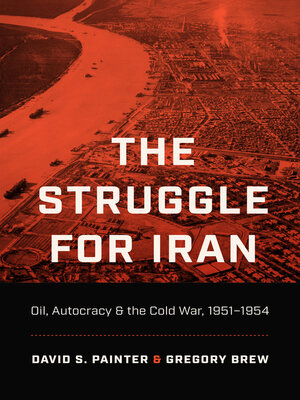
Sign up to save your library
With an OverDrive account, you can save your favorite libraries for at-a-glance information about availability. Find out more about OverDrive accounts.
Find this title in Libby, the library reading app by OverDrive.



Search for a digital library with this title
Title found at these libraries:
| Library Name | Distance |
|---|---|
| Loading... |
Beginning with the nationalization of the Iranian oil industry in spring 1951 and ending with its reversal following the overthrow of Prime Minister Mohammad Mosaddeq in August 1953, the Iranian oil crisis was a crucial turning point in the global Cold War. The nationalization challenged Great Britain’s preeminence in the Middle East and threatened Western oil concessions everywhere. Fearing the loss of Iran and possibly the entire Middle East and its oil to communist control, the United States and Great Britain played a key role in the ouster of Mosaddeq, a constitutional nationalist opposed to communism and Western imperialism. U.S. intervention helped entrench monarchical power, and the reversal of Iran’s nationalization confirmed the dominance of Western corporations over the resources of the Global South for the next twenty years.
Drawing on years of research in American, British, and Iranian sources, David S. Painter and Gregory Brew provide a concise and accessible account of Cold War competition, Anglo-American imperialism, covert intervention, the political economy of global oil, and Iran’s struggle against autocratic government. The Struggle for Iran dispels myths and misconceptions that have hindered understanding this pivotal chapter in the history of the post–World War II world.
Drawing on years of research in American, British, and Iranian sources, David S. Painter and Gregory Brew provide a concise and accessible account of Cold War competition, Anglo-American imperialism, covert intervention, the political economy of global oil, and Iran’s struggle against autocratic government. The Struggle for Iran dispels myths and misconceptions that have hindered understanding this pivotal chapter in the history of the post–World War II world.







